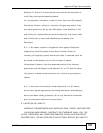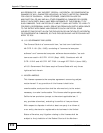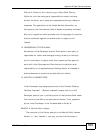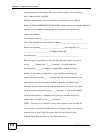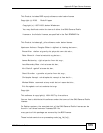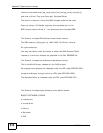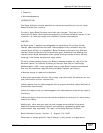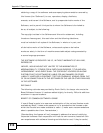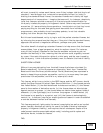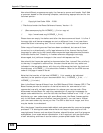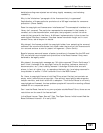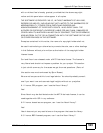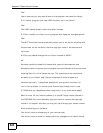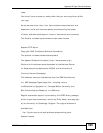
Appendix E Open Source Licences
NSA320 User’s Guide
519
will want to carefully review each license, even if they've been told that they're all
standard. I would expect that, unless we're remarkably brilliant (or lucky) in
drafting the standard Boost license, the standard license won't satisfy the legal
departments of all corporations. I imagine that some will, for instance, absolutely
insist that licensors provide a warranty of title and provide indemnification for
third-party intellectual property infringement claims. Others may want functional
warranties. (If I were advising the corporations, I would point out that they're not
paying anything for the code and getting such warranties from individual
programmers, who probably do not have deep pockets, is not that valuable
anyway, but other lawyers may disagree.)
But this can be addressed, not by trying to craft the perfect standard license, but
by informing the corporations that they can, if they don't like the standard license,
approach the authors to negotiate a different, perhaps even paid, license.
One other benefit of adopting a standard license is to help ensure that the license
accomplishes, from a legal perspective, what the authors intend. For instance,
many of the [original] licenses for the libraries available on boost.org do not
disclaim the warranty of title, meaning that the authors could, arguably, be sued
by a user if the code infringes the rights of a third party and the user is sued by
that third party. I think the authors probably want to disclaim this kind of liability.
SHORT-FORM LICENSE
Without in anyway detracting from the draft license that's been circulated [to
Boost moderators], I'd like to propose an alternative "short-form" license that
Boost could have the library authors adopt. David [Abrahams] has expressed a
desire to keep things as simple as possible, and to try to move away from past
practice as little as possible, and this is my attempt at a draft.
This license, which is very similar to the BSD license and the MIT license, should
satisfy the Open Source Initiative's Open Source Definition: (i) the license permits
free redistribution, (ii) the distributed code includes source code, (iii) the license
permits the creation of derivative works, (iv) the license does not discriminate
against persons or groups, (v) the license does not discriminate against fields of
endeavor, (vi) the rights apply to all to whom the program is redistributed, (vii)
the license is not specific to a product, and (viii) the license is technologically
neutral (i.e., it does not [require] an explicit gesture of assent in order to establish
a contract between licensor and licensee).
This license grants all rights under the owner's copyrights (as well as an implied
patent license), disclaims all liability for use of the code (including intellectual
property infringement liability), and requires that all subsequent copies of the
code [except machine-executable object code], including partial copies and
derivative works, include the license.
FAQ



